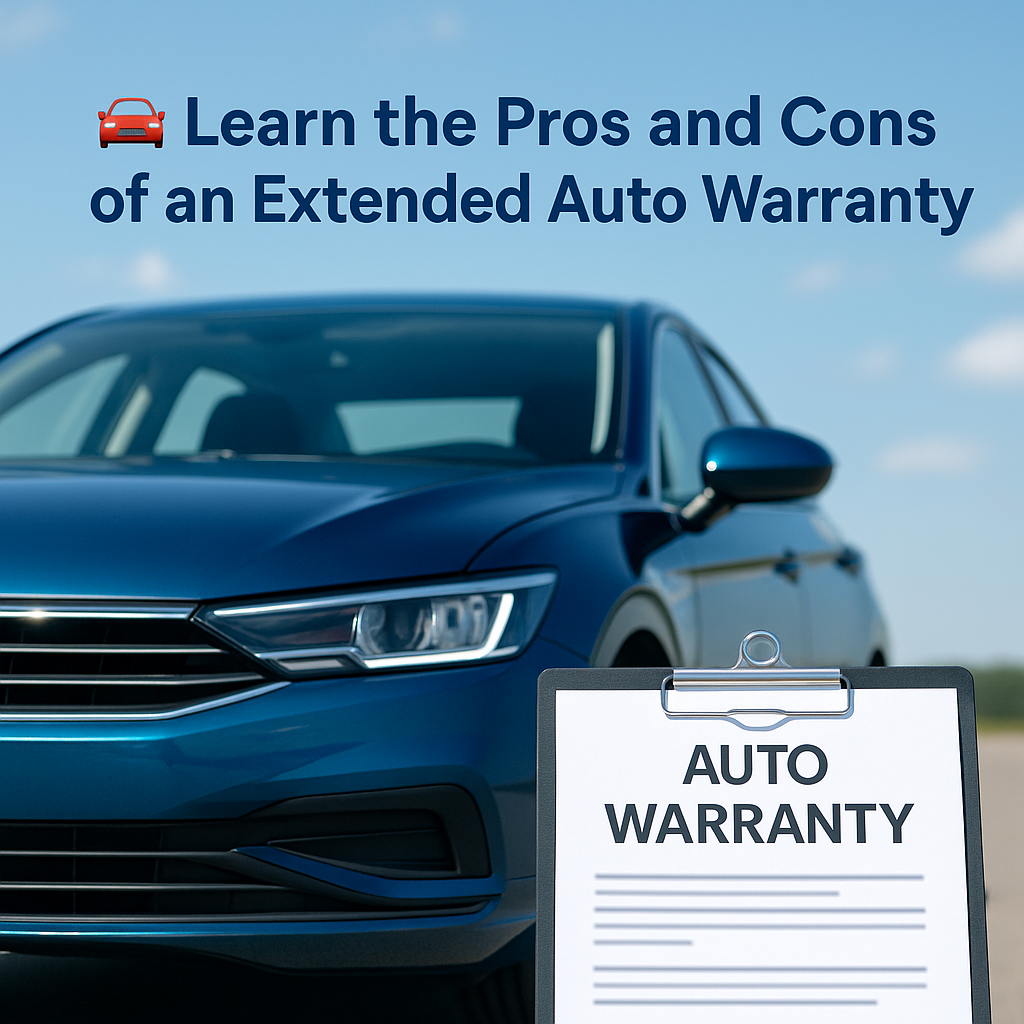
Buying a car is a major investment—but maintaining it can be just as expensive over time. That’s where an extended auto warranty comes in. Often offered after your factory warranty expires, extended warranties can cover repairs, reduce out-of-pocket costs, and offer peace of mind.
But is it always worth it? Let’s break down the real advantages and disadvantages of extended auto warranties so you can make an informed decision.
✅ Pros of an Extended Auto Warranty
- Protection from Unexpected Repair Costs – Modern vehicles come with complex electronics and expensive components. A single breakdown can cost hundreds—or even thousands.
- Peace of Mind – Just knowing that you’re covered in case of a major failure can reduce stress—especially if you rely on your vehicle daily.
- Customizable Coverage – Many providers offer flexible plans covering powertrain, electrical systems, air conditioning, and more.
- Transferable Plans – May boost resale value if the warranty transfers to the next owner.
- Perks – Towing, roadside assistance, and rental car reimbursement are often included.
❌ Cons of an Extended Auto Warranty
- Not All Repairs Are Covered – Wear-and-tear items like brakes, tires, and fluids may be excluded.
- Upfront Cost – Some plans cost thousands upfront or via monthly payments.
- Overlapping Coverage – If your factory warranty is still active, you may not need one yet.
- Repair Shop Limitations – Some warranties restrict service to specific providers.
- Claim Denials – Some providers use vague contract terms to deny claims.
🧠 Should You Buy an Extended Auto Warranty?
It depends on your:
- Car’s age and mileage
- Repair history and reliability rating
- Personal risk tolerance and budget
- How long you plan to keep the car
For older vehicles out of warranty, an extended plan may be worth it. For newer, reliable models, saving for repairs might be smarter.
🚘 Compare Auto Warranty Plans Near You
Final Word
An extended auto warranty isn’t one-size-fits-all. For some drivers, it offers peace of mind and real savings. For others, it’s an unnecessary cost. By weighing the pros and cons—and comparing reputable providers—you’ll be better prepared to protect both your car and your wallet.